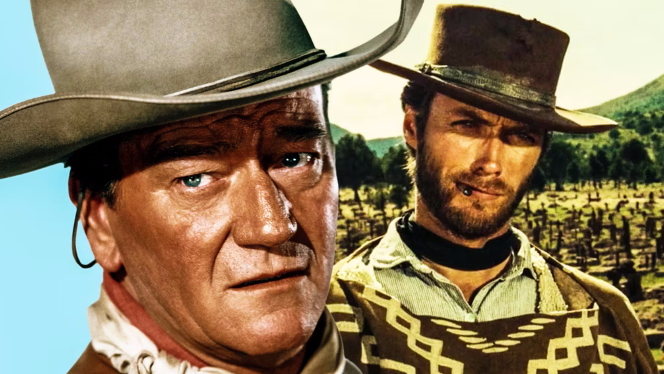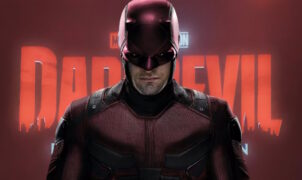MOVIE NEWS – Although John Wayne and Clint Eastwood are forever associated with the Western genre, their relationship has been strained, and several attempts to work together have failed.
John Wayne and Clint Eastwood are the two names most readily associated with the Western film genre. But the two never starred side by side in the same film. In fact, they had a feud of sorts from the 1960s onwards. Wayne had been a defining figure in the genre since his acclaimed breakthrough role in John Ford’s Stagecoach (1939). Eastwood, who was nearly 25 years younger than Wayne, only debuted as the lead in Sergio Leone’s The Dollar Trilogy (1964-1966). The apparent succession was a difficult one for Wayne, who was also stunned by the genre’s dark transition. This coincided with Eastwood’s rise to fame.
It would be unfair to blame Eastwood for the emergence of the gritty spaghetti western sub-genre, which belied the endless romanticism of the classic western for the era it depicted, the gunfighter’s rise to starring status was only possible because of Sergio Leone.
Just as Wayne and Ford are forever synonymous, so Eastwood and Leone are too. In fact, in the 1960s, the Western pendulum swung so firmly that Wayne outright denounced the development. He refused to appear in a later film with Eastwood, despite Eastwood’s willingness to work with him. Since the two sub-genres never reconciled, this inevitably meant that neither did Wayne and Eastwood.
Could John Wayne have hated Eastwood’s take on Western?
Together, John Wayne and director John Ford embodied the early 20th-century commitment to the depiction of the Old West. This image is charming, star-studded, and probably a little off-kilter. While the genre’s golden age has its merits, the most popular elements were stubbornly inaccurate and overly idyllic. When Clint Eastwood – and the spaghetti sub-genre with which he is most associated – emerged, the ideals of clear morality, American exceptionalism and ‘manifest destiny’ were shattered. The ever-patriotic and conservative Wayne opposed such progressivism. He was particularly irritated by Eastwood’s rising star, which arguably surpassed his own for a time in the 1960s.
Clint Eastwood and John Wayne represented two different generations
By the late 1960s, the Western landscape had changed dramatically. Not only did the revisionist sub-genre (whose endurance has carried it into the 21st century, best exemplified by the 2016 miniseries Godless) win the hearts of audiences, but the spaghetti western, in particular, completely rewrote the laws of the genre. A Fistful of Dollars (1964) – the remake of Kurosawa’s Yojimbo (1961) – marked the dawn of a new era of cowboy films. The names of Eastwood, Charles Bronson and Franco Nero came to be the faces of this era.
This generation favoured the more graphic, bloody and brutal depiction of the Wild West, in contrast to the great works of Wayne, who came from the old generation of Western romantics.
John Wayne refused to star in an Eastwood film
Larry Cohen, the director of the B-movies, imagined that Wayne and Eastwood could work together on a western he had written. This would become The Hostiles, which began to come together in the early 1970s. Not much is known about the script – other than that, it centred on a young gambler and an older man. But Wayne saw the film as a continuation of the spaghetti western trend that was plaguing the genre. In particular, Eastwood’s directorial debut, High Plains Drifter (1973), failed to impress. In his view, it was a cynical, hackneyed illustration of the Old West. The controversy remained unresolved because Wayne’s view of the era – noble and mystical – was incompatible with the new interpretations Eastwood considered pioneering.
Source: Collider
















Leave a Reply